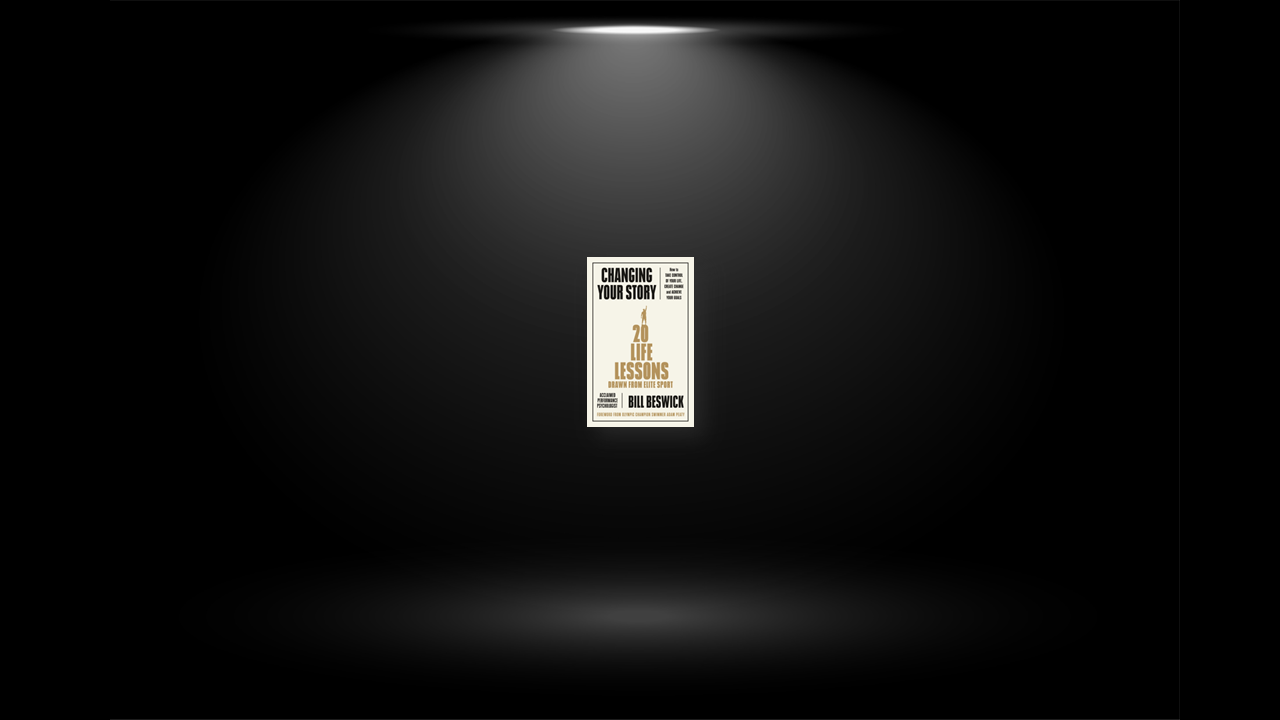Lesson 1: Take Responsibility
Self-discipline is not easy and asks people to move from the comfortable – avoiding responsibility and blaming others – to the uncomfortable – taking responsibility and accepting accountability. I like the way Susan David expresses this need in her book Emotional Agility:
As with every hero’s journey, our movement to a better life begins with showing up. But that doesn’t mean we have to smile or slay all the demons. It does mean we must face up to, make peace with, and find an honest and open way to live with them. When we show up fully even the worst demons usually back down.
The first line you have to cross is to show up and face the challenges that your environment poses. For most of us, these include holding down a responsible job, building positive relationships and meeting our financial commitments. You can only achieve these and flourish if you learn to control your emotions and stay positive, avoid the excuses to do nothing and stay resilient in the face of difficulties.
Lesson 2: Find Your Reason Why
increasing your level of commitment is uncomfortable, it demands more time and effort. Most people settle for the comfort of a lesser-grade life.
The author asks the athletes to picture themselves as an A grade athlete and to describe the story of their career. Wonderful stories emerge of how they make the best of their unique potential and achieve great success. Everybody should want to and can lead an A grade life but like the extraordinary student they have to commit to making the difficult A grade choice every day.
There are, of course, a thousand excuses not to take the time and effort needed to commit to an A Grade choice. However, probably not a single reason not to try.
Lesson 3: Change Your Story
it is important to learn the mental discipline of ‘parking’ the initial response and reframing the interpretation more rationally. When this happens, positivity and energy return, and we can see ways forward. This is the way to turn what is initially seen as a problem into an opportunity.
Rather than waste time and energy worrying about uncontrollable, firmly lock into a solution focus. Next time you feel overwhelmed or out of control of the situation you find yourself in, take a ‘time-out’ and reframe your narrative to write yourself as the winner. Find yourself a ‘thinking partner’. You are the author of your own story, how do you want to tell it?
Lesson 4: Set No Limits
If we can find real meaning in the tasks we do, it will elevate the quality and success of the outcomes, and we will be creating a better version of ourselves. Don’t set limits on yourself – there is always much more you can achieve. Make a list of your personal successes, big or small. Create your ‘Picture of Perfection’ – what’s the best that could happen? Find a belief partner – someone close who believes in you and motivates you to be better. Develop a ‘What’s next?’ attitude to build achievement momentum.
Lesson 5: Performance Follows Attitude
You can often succeed with limited talent but never with limited attitude. Performance begins in the head, and successful people think differently from unsuccessful people. Once your attitude is right, good performance is much more likely to follow, and the good news is that though improving your talent can be difficult and take time, you can boost your attitude significantly any time you choose.
High performance in any field inevitably means leaving your comfort zone and facing up to high expectations, stress, some failures, overload, uncertainty and probably some pressure on your relationships. Talent alone cannot resolve these. It is your positive attitude that will provide the mental strength to overcome them.
Lesson 6: The Competition Is You
It is easy in sport and life to believe that dealing with the challenges we face is completely beyond our control, but there is often a you versus you element – the weak you versus the strong you, a negative mindset dominating a positive attitude. A significant proportion of the author’s clients are, in some way or other, getting in their own way. The solution is to find and assert a positive attitude rather than dwell on the negatives.
When facing a new challenge that seems too difficult start by asking, ‘Am I the problem?’ Check yourself by answering these questions: Do I want to do this? Can I do this? What do others expect of me? What if I fail? What if I succeed? Compose a trigger card of phrases that describe you at your best. Keep your trigger card handy so you can use it regularly to switch your mindset from negative to positive.
Lesson 7: Stay Positive
You can begin to retrain your mind by becoming aware and sensitive to those situations in life where you tend to become negative. Then ask yourself: why? Common reasons include anger, fatigue, boredom, frustration and despair. By appraising the situation and controlling your response you can learn to move on from such negative emotions. The key is to choose realistic and positive self-talk with words that empower and generate energy. You become your own cheerleader.
Become more assertive about using strong positive words like ‘can’ and ‘will’. Be a cheerleader for others – it will lift your spirits. Seek the company of those who make you feel more positive about yourself.
Lesson 8: Raise Your Bottom Line
In high-performance activities the drive for perfection is the ultimate intrinsic motivation. Where perfection, though desirable, is mostly unattainable there will be a constant struggle with the frustration of imperfection – no matter how good the performance is.
Mastery accepts that the performance might well include mistakes and setbacks but prides itself on continually striving to achieve your very best despite these. Simply put, the hard work of striving to be the best you can be (whether as an employee, a partner, a friend or a teammate) ensures that you will consistently operate on or near your ‘top line’ and wins you the trust of others. Could you embrace this and aim to raise your bottom line rather than seeking perfection?
Lesson 9: Success Is a Series of Small Steps
There are times in life when change is necessary, though we all appreciate change can be very difficult, especially changing our own behaviour. It can be made more achievable if you plan a series of small steps leading towards the eventual goal. Envisage this as a ‘tick stepladder’ that allows the build-up of relatively easy successes, thus building confidence to see the change through.
Start this process by working from the end backwards, asking yourself what would represent success, then breaking this down into the steps necessary to achieve it, creating small doable actions. Each step forward rewards you with a ‘tick’ towards your end goal. If you have the discipline to follow your programme, then, like Evan and Jenny, you will have given yourself the best chance of success.
Lesson 10: Define the Moment
There is perhaps no more mentally and emotionally demanding moment in sport than taking part in a penalty shootout at the end of the game. An example use with athletes today is the women’s field hockey final at the 2016 Rio Olympic Games, where Great Britain beat the reigning champions the Netherlands 2–0 in a thrilling penalty shootout after drawing 3–3 in normal time. Hollie Pearne-Webb defined the moment of the vital final penalty goal for GB and later reflected in the media on her mental state: ‘I reminded myself I could do this. I kept recalling that I had done this many times before. I walked slowly up, showing I was in control. I looked as confident as I could and stood really tall. Finally, I looked the goalkeeper in the eye.’
Simple thoughts and actions but very powerful in sending a message both to herself and to the goalkeeper: ‘I am going to do this!’ In designing and writing your own life story of who you want to be and how you want to live, there will be moments when you will be challenged. Don’t let them become ‘should’a, could’a, would’a’ memories, leaving you reflecting on what might have been.
Recognize such moments. Take responsibility. Define the situation rather than being defined by it. Accept the price of growth may sometimes be failure.


